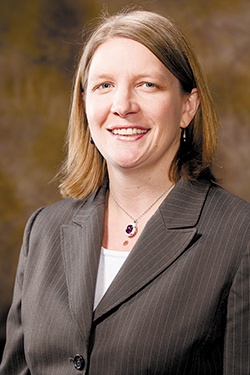One Heck of a Value (OPINION)
by July 4, 2016 12:00 am 198 views

As an economist, I am hard-wired to appreciate a good value.
In economics-speak, that means that I’m on a mission to maximize marginal utility per dollar. In the language of real life, I try hard to spend my money in the ways that will provide me the most happiness now, while letting me have the best chance at a good life later.
Northwest Arkansas seems like the ideal place to make these tradeoffs. As reported earlier this year by U.S. News and World Report, the Northwest Arkansas region ranks first in the “Best Affordable Places to Live in the U.S.” category and ranks third in the unqualified “Best Places to Live in the U.S.” These are impressive accolades, and their implications are worth considering.
The first place to start thinking about the overall value of Northwest Arkansas is the area’s hot economy. With an unemployment rate of 2.4 percent (as of April 2016) and employment growth of more than 10,000 jobs per year, economic opportunity abounds. The area ranks well on school quality and low crime rates.
The amenities of the region increase every year and include cultural institutions like Crystal Bridges Museum of American Art and the Walton Arts Center, sports opportunities from Arkansas Razorback athletics to the Northwest Arkansas Naturals, recreational activities from the Razorback Greenway to soft trails to kayaking, and dining and entertainment options that rival those of much larger metros. There is also a great deal of social capital in the region — a sense of philanthropy, partnership and community — that makes Northwest Arkansas a particularly friendly place.
The remarkable thing about all of these attributes is that they come at a low price. In particular, average housing costs in Northwest Arkansas are roughly 80 percent of average national costs. In fact, according to U.S. News and World Report, the average individual spends less than 24 percent of income on living expenses, a number that is even significantly better than the 26.6 percent from the second-most affordable place, Des Moines, Iowa. The affordable housing is accompanied by smaller than average commute times, as well.
Up until the year 2010, the relatively inexpensive housing in Northwest Arkansas was accompanied by per capita personal income (average earnings from wages, investments and government transfers) that was also lower than the national average, but in the years since, the Northwest Arkansas statistic has been about 10 percent higher. In Benton County, average annual wages exceeded those of the U.S. in both 2014 and 2015. So, the region is finding itself in a best-of-all-worlds position — relatively high incomes and relatively low costs. In other words, Northwest Arkansas is one heck of a value for those of us who live here.
But, like all great deals, news of the region’s reputation sows the seeds of its undoing. There are a number of forces pushing Northwest Arkansas to be a bit more expensive. As the region matures, there are fewer available lots in the prime corridor locations and the existing ones increase in value.
Population growth means that Northwest Arkansas can support many more amenities, but more people means more competition for the best houses, schools and even parking spots. The low unemployment rate means that employers are under pressure to increase wage to retain and attract the best employees, and those increased wages may well be passed along to consumers in the form of higher costs of goods and services.
Globalized supply chains mean that there are few durable price advantages and Northwest Arkansas is not immune to the forces that equalize cost of living and quality of life across the world.
Nevertheless, in this moment, Northwest Arkansas is a uniquely great place to live — especially if you’re the type who considers cost/benefit tradeoffs day and night.
Kathy Deck is the director of the Center for Business and Economic Research in the Sam M. Walton College of Business at the University of Arkansas. She can be reached at [email protected].
